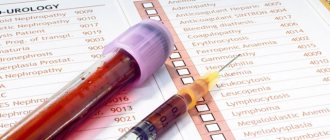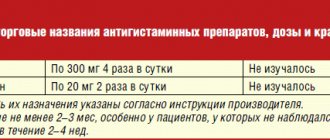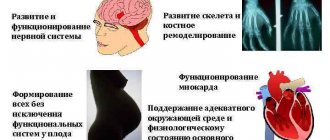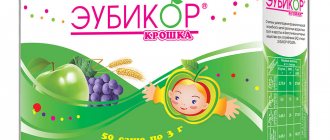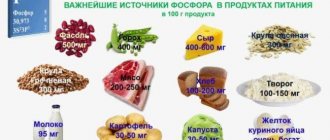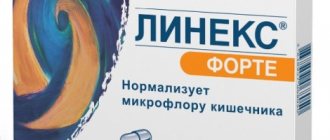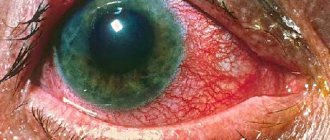Xtandi
Effect of other drugs on enzalutamide
CYP2C8 inhibitors The CYP2C8 enzyme
plays an important role in the elimination of enzalutamide and in the formation of its active metabolite. Following oral administration of the strong CYP2C8 inhibitor gemfibrozil (600 mg twice daily) to healthy male patients, the AUC of enzalutamide increased by 326%, whereas the Cmax of enzalutamide decreased by 18%. For the sum of unbound enzalutamide plus unbound active metabolite, AUC increased by 77%, while Cmax decreased by 19%. Strong inhibitors (eg gemfibrozil) should be avoided or used with caution during treatment with enzalutamide. If patients must co-administer a strong CYP2C8 inhibitor, the enzalutamide dose should be reduced to 80 mg once daily.
CYP3A4 inhibitors The CYP3A4 enzyme
plays a minor role in the metabolism of enzalutamide. Following administration of the strong CYP3A4 enzyme inhibitor itraconazole (200 mg once daily) to healthy volunteers, the AUC of enzalutamide increased by 41%, while the Cmax did not change. For the sum of unbound enzalutamide plus unbound active metabolite, AUC increased by 27%, while Cmax again remained unchanged.
When co-administering enzalutamide with CYP3A4 inhibitors, no dose adjustment is required.
Inducers of
CYP2C8 and CYP3A4 Following volunteers AUC
of enzalutamide and the active metabolite decreased by 37%, while the Cmax remained unchanged . .
When enzalutamide is used concomitantly with inducers of CYP2C8 or CYP3A4, no dose adjustment is required.
Effect of enzalutamide on other drugs
Enzyme induction
Enzalutamide is a potent enzyme inducer and increases the synthesis of many enzymes and transporters, so it interacts with many common drugs that are enzyme substrates or transporters. The decrease in plasma concentrations may be significant and lead to loss or reduction of clinical effect. There is also a risk of formation of active metabolites. Enzymes that can be induced include CYP3A in the liver and intestine, CYP2B6, CYP2C9, CYP1C19 and uridine 5′-diphosphate glucuronosyltransferase. Induction of the transport protein P-glycoprotein and other transporters is also possible, as well as, for example, multidrug resistance protein 2 (MRP2), breast cancer resistance protein (BCRP) and organic anion transporting polypeptide 1B1 (OATP1B1).
In
vivo
studies have shown that enzalutamide is a strong inducer of CYP3A4 and a moderate inducer of CYP2C9 and CYP2C19. Coadministration of enzalutamide (160 mg once daily) in patients with prostate cancer resulted in an 86% reduction in the AUC of midazolam (a CYP3A4 substrate), a 56% reduction in the AUC of S-warfarin (a CYP2C9 substrate), and a 70% reduction in AUC of omeprazole (CYP2C19 substrate). Induction of UGT1A1 is also possible. In a clinical study in patients with metastatic CRPC, Xtandi (160 mg once daily) had no clinically significant effect on the pharmacokinetics of intravenous docetaxel (75 mg/m2 IV every 3 weeks). Docetaxel AUC decreased by 12% [geometric mean ratio (GMR) = 0.882 (90% CI: 0.767, 1.02)], while Cmax decreased by 4% [GMR = 0.963 (90% CI: 0.834, 1.11)].
The drug also interacts with certain drugs that are eliminated during metabolism or active transport. If their therapeutic effect is of great importance to the patient and dose adjustment based on monitoring of efficacy or plasma concentration is not easy to make, these drugs should be avoided or used with caution. It is assumed that the risk of liver damage after taking paracetamol is higher in patients who were simultaneously administered enzyme inducers.
The group of drugs that may interact with the drug includes, but is not limited to:
- analgesics (eg fentanyl, tramadol)
- antibiotics (for example, clarithromycin, doxycycline)
- antineoplastic agents (for example, cabazitaxel)
- antiepileptics (for example, carbamazepine, clonazepam, phenytoin, primidone, valproic acid)
- antipsychotics (for example, haloperidol)
- anticoagulants (for example, acenocoumarol, warfarin, clopidogrel)
- running blockers (for example, bisoprolol, propranolol)
- calcium channel blockers (for example, diltiazem, felodipine, nicardipine, nifedipine, verapamil)
- cardiac glycosides (for example, digoxin)
- corticosteroids (eg, dexamethasone, prednisolone)
- antiviral drugs for the treatment of HIV infection (for example, indinavir, ritonavir)
- sleeping pills (eg diazepam, midazolam, zolpidem)
- immunosuppressants (for example, tacrolimus)
- proton pump inhibitors (for example, omeprazole)
- statins metabolized by the enzyme CYP3A4 (for example, atorvastatin, simvastatin)
- thyroid medications (for example, levothyroxine)
The full induction potential of enzalutamide may become apparent approximately 1 month after initiation of treatment, after stable plasma concentrations of enzalutamide have been achieved. although some induction effects may become noticeable earlier. In patients taking drugs that are substrates of the enzymes CYP2B6, CYP3A4, CYP2C9, CYP2C19, or UGT1A1, the possible decrease in pharmacological exposure (or increase in exposure if active metabolites are formed) should be assessed during the first month of treatment with enzalutamide and the dose adjusted accordingly. Given the long half-life of enzalutamide (5.8 days), the effect on enzyme formation may persist for one month or more after discontinuation of enzalutamide. When treatment with enzalutamide is discontinued, a gradual reduction in the dose of concomitant medications may be necessary.
CYP2C8 and CYP1A2 substrates Enzalutamide (
once daily) does not cause clinically significant changes in the AUC or Cmax of caffeine (CYP1A2 substrate) or pioglitazone (CYP2C8 substrate ) . The AUC of pioglitazone increased by 20%, while Cmax decreased by 18%. AUC and Cmax of caffeine decreased by 11% and 4%, respectively. If CYP2C8 or CYP1A2 substrates are co-administered with enzalutamide, no dose adjustment is required.
P-glycoprotein substrates
In
vitro
data indicate that enzalutamide may be an inhibitor of the P-glycoprotein efflux transporter.
The effect of enzalutamide on P-glycoprotein substrates has not been assessed in vivo
; however, in clinical use, enzalutamide may be an inducer of P-glycoprotein through activation of the nuclear pregnane receptor (pregnane X receptor). Drugs with a narrow therapeutic index that are substrates for P-glycoprotein (e.g., colchicine, dabigatran etexilate, digoxin) should be used with caution when used concomitantly with enzalutamide, and dose adjustment may be required to maintain optimal plasma concentrations.
Substrates of breast cancer resistance protein
( BCRP ), multidrug resistance protein 2 ( MRP 2), human organic anion transporter type 3 (OAT3) and human organic cation transporter 1 (OCT1)
Based on laboratory data, inhibition of BCRP and MRP2 cannot be ruled out. (in the intestine), as well as human organic anion transporters type 3 (OAT3) and human organic cation transporters 1 (OCT1) (systemic). Theoretically, induction of these transporters is also possible, and the net effect is currently unknown.
Drugs that prolong the
QT
interval Due to the fact that androgen deprivation therapy may prolong the QT interval, concomitant use of Xtandi with drugs that prolong the QT interval, as well as drugs that may cause torsade de pointes (TdP), such as antiarrhythmic drugs of class IA (for example, quinidine, disopyramide) or class III (for example, amiodarone, sotalol, dofetilide, ibutilide), methadone, moxifloxacin, antipsychotics, etc.
Effect of food on enzalutamide intake
Food intake has no clinically significant effect on the extent of enzalutamide exposure. In clinical studies, Xtandi was administered without regard to food intake.
Table. Availability of enzalutamide in preferential lists
Brief legal status
A drug with the trade name Xtandi ® and the international nonproprietary name enzalutamide .
Indications[1] for the use of Xtandi ®:
Metastatic castration-resistant prostate cancer.
Pharmacotherapeutic group: antiandrogen
Dosage form: concentrate for the preparation of solution for infusion
ATX CODE L02BB04
RU number: LP-003605 dated 05/04/2016 (re-registration 06/05/2017)
In the International Classification of Diseases, X Revision (ICD-X), malignant neoplasms of the prostate gland are coded C61 .
Registration certificate holder: Astellas Pharma Europe B.V.
| Name of the preferential list | Enable status |
| A list of life-threatening and chronic progressive rare (orphan) diseases that lead to a reduction in the life expectancy of citizens or their disability. Decree of the Government of the Russian Federation dated April 26, 2012 No. 403 | No |
| List of population groups and categories of diseases for outpatient treatment of which medicines and medical products are dispensed free of charge according to doctors’ prescriptions (among categories of diseases), Decree of the Government of the Russian Federation of July 30, 1994 No. 890 | Yes. Oncological diseases - all drugs. |
| List of population groups and categories of diseases for outpatient treatment of which medicines and medical products are dispensed free of charge according to doctors’ prescriptions (benefits among population groups), Decree of the Government of the Russian Federation of July 30, 1994 No. 890 | children under 3 years of age; disabled people of groups 1 and 2; WWII veterans, etc. |
| List of vital and essential drugs for medical use for 2015 (VED list); Order of the Government of the Russian Federation of December 30, 2014 No. 2782-r | Yes, from 01/01/2018 |
| List of medications for medical use, including medications for medical use prescribed by decision of medical commissions of medical organizations; Order of the Government of the Russian Federation of December 30, 2014 No. 2782-r | No |
| List of medications intended to provide persons with hemophilia, cystic fibrosis, pituitary dwarfism, Gaucher disease, malignant neoplasms of lymphoid, hematopoietic and related tissues, multiple sclerosis, persons after organ and (or) tissue transplantation; (list of “7 nosologies); Order of the Government of the Russian Federation of December 30, 2014 No. 2782-r | No |
| A list of medications, including a list of medications prescribed by decision of the medical commission of medical institutions, the provision of which is carried out in accordance with the standards of medical care according to prescriptions of a doctor (paramedic) in the provision of state social assistance in the form of a set of social services; Order of the Ministry of Health and Social Development of the Russian Federation dated September 18, 2006 No. 665. | No |
The direct legal basis for receiving enzalutamide on an outpatient basis is the presence of cancer in the patient in accordance with Decree of the Government of the Russian Federation of July 30, 1994 N 890.
The same Decree of the Government of the Russian Federation lists lists of population groups and categories of diseases, among which it is indicated that disabled people of non-working groups I and II, as well as disabled children under 18 years of age and some other groups of the population receive all necessary medicines free of charge, and disabled people Groups II and III, recognized as unemployed in accordance with the established procedure, with a 50% discount.
There are two standards of care for patients with prostate cancer:
Order of the Ministry of Health and Social Development of the Russian Federation dated July 8, 2005 N 445 “On approval of the standard of medical care for patients with malignant neoplasms of the prostate gland” (outpatient care, initial stage);
Order of the Ministry of Health and Social Development of the Russian Federation dated December 1, 2005 N 737 “On approval of the standard of medical care for patients with malignant neoplasms of the prostate gland” (inpatient care, primary process).
These orders were not published; their legal and regulatory force is controversial. Since metastatic castration-resistant cancer cannot be considered the initial stage or even the primary process, these standards do not apply to those stages of the disease when enzalutamide is used.
Enzalutamide is not included in these standards.
Since it is not included in the standards, the most realistic opportunity to receive it on an outpatient basis and in hospitals should be considered the decision of the medical commission in accordance with Part 5. Art. 37 Federal Law of the Russian Federation No. 323 dated November 22, 2011. “On the basics of protecting the health of citizens in the Russian Federation.”
Disclaimers
enzalutamide medication, citizens write a statement first to the chief physician, then, if the right is not restored, to the prosecutor with approximately the following content:
Chief physician of the oncology clinic
From Ivanov Ivan Ivanovich,
residing at the address: ____, st. Ivanovskaya, house X
Application for elimination of violation of the right to security
Enzalutamide medicine free of charge
On May 12, 2017, I turned to Moscow Polyclinic No. X for medical help due to poor health. After research and examination prescribed by the doctor, I was given a number of diagnoses and prescribed treatment, which did not help me for two months. My condition was getting worse, I realized that I was being treated for something else. After that, I turned to the Oncology Research Center named after. Blokhin in Moscow, where I was diagnosed with Metastatic castration-resistant prostate cancer, and a number of medications were prescribed for its treatment, including enzalutamide.
On July 19, 2017, I turned to Oncology Clinic No. X for help, in particular, to prescribe this medicine to me. However, my attending physician, without denying the effectiveness of this medicine, said that he could not prescribe it to me, since it was expensive, and the dispensary could not afford it. I understand that the attending physician and the dispensary have their own problems, but both my health and my rights are important to me.
As follows from scientific data[2]:
“Enzalutamide is a new generation AR inhibitor, with four times greater affinity for AR than bicalutamide. Unlike other antiandrogens, enzalutamide not only prevents the binding of testosterone to AR, but also blocks AR translocation into the nucleus and transcription activation [156].
The randomized, placebo-controlled, phase 3 AFFIRM trial, which included 1,199 patients with mCRPC who had received prior docetaxel therapy, demonstrated a statistically significant increase in OS in the enzalutamide group compared with placebo - median OS was 18.4 versus 13.6 months.
Therefore, I consider what happened to be a gross violation of my rights to necessary medical care, and I am ready to fight for them.
Since I have cancer, I have the right to receive all medications free of charge in accordance with Decree of the Government of the Russian Federation of July 30, 1994 N 890.
Based on this resolution, the subject of the Russian Federation is obliged to provide me with the medicine I need at its own expense.
According to general rules of law in accordance with Part 1 of Art. 41 of the Constitution of the Russian Federation “Medical care in state and municipal health care institutions is provided to citizens free of charge at the expense of budget, insurance and other revenues.” Medical care without the necessary medications cannot be considered help.
The sources of the right to free medical care are also:
Part 1 Art. 25 of the Universal Declaration of Human Rights, adopted on December 10, 1948 by the UN General Assembly;
Art. 33 of the Charter of Social Rights and Guarantees of Citizens of Independent States, approved in the city of St. Petersburg on October 29, 1994 at the 5th plenary meeting of the Interparliamentary Assembly of the CIS Member States.
Thus, there is not one, but a set of legal norms, on the basis of which a subject of the Russian Federation is obliged to provide me with the medicine I need free of charge. Since drug provision is part of medical care, and at the same time my right, on which my life and health depend, failure to provide me with a drug should be regarded in relation to the inaction of specific officials as negligence, which is a crime under Art. 293 of the Criminal Code of the Russian Federation, and I consider the actions of my attending physician, who is obliged to prescribe me the necessary medicine, but does not do this, also leaving me in danger - Art. 125 of the Criminal Code of the Russian Federation.
From January 1, 2022, enzalutamide is included in the list of vital and essential drugs.
Based on the above, I ASK:
Prescribe and provide me with the drug enzalutamide;
In case of failure to comply with the above, I can only turn to law enforcement agencies to protect my rights.
Date of. Signature.
To the prosecutor of the city N
Investigative Committee of X district in Moscow
From Ivanov Ivan Ivanovich,
living at the address: Moscow, st. Ivanovskaya, house X
Application for elimination of violation of the right to security
the medicine is nzalutamide for free
On July 19, 2017, I turned to Oncology Clinic No. X for help, in particular, to prescribe me the medication enzalutamide. However, my attending physician, without denying the effectiveness of this medicine, said that he could not prescribe it to me, since it was expensive, and the dispensary could not afford it. I understand that the attending physician and the dispensary have their own problems, but both my health and my rights are important to me. Therefore, I consider what happened to be a gross violation of my rights to necessary medical care, and I am ready to fight for them.
I submitted a statement to the head doctor of the dispensary, but did not receive a response to my appeal, which I regard as a refusal to provide me with medical care.
Then I wrote to the Moscow Department of Health, but was refused due to the fact that supposedly my attending physician had already prescribed all the necessary treatment.
Therefore, I turned to the Russian Oncology Research Center named after. N.N. Blokhin, where I received a conclusion that enzalutamide was indicated for me to achieve the best treatment results. This center is Russia's leading scientific institution in the field of oncology.
However, at the oncology center they told me that they were not interested in the opinions of outside organizations, even professors.
I consider this a gross violation of my rights to necessary medical care, and even my right to life.
Since I have cancer, I have the right to receive all medications free of charge in accordance with Decree of the Government of the Russian Federation of July 30, 1994 N 890.
Based on this resolution, the subject of the Russian Federation is obliged to provide me with the medicine I need at its own expense.
According to general rules of law in accordance with Part 1 of Art. 41 of the Constitution of the Russian Federation “Medical care in state and municipal health care institutions is provided to citizens free of charge at the expense of budget, insurance and other revenues.” Medical care without the necessary medications cannot be considered help.
The sources of the right to free medical care are also:
Part 1 Art. 25 of the Universal Declaration of Human Rights, adopted on December 10, 1948 by the UN General Assembly;
Art. 33 of the Charter of Social Rights and Guarantees of Citizens of Independent States, approved in the city of St. Petersburg on October 29, 1994 at the 5th plenary meeting of the Interparliamentary Assembly of the CIS Member States.
Thus, there is not one, but a set of legal norms, on the basis of which a subject of the Russian Federation is obliged to provide me with the medicine I need free of charge. Since drug provision is part of medical care, and at the same time my right, on which my life and health depend, failure to provide me with a drug should be regarded in relation to the inaction of specific officials as negligence, which is a crime under Art. 293 of the Criminal Code of the Russian Federation, and I consider the actions of my attending physician, who is obliged to prescribe me the necessary medicine, but does not do this, also leaving me in danger - Art. 125 of the Criminal Code of the Russian Federation.
From January 1, 2022, enzalutamide is included in the list of vital and essential drugs.
On the basis of the above
ASK:
Take measures to provide me with medical care, including the drug supply of enzalutamide, free of charge in the required (assigned to me) volume, for which:
- Submit a submission addressed to the Head of the Moscow Health Department to eliminate the violated right to provide me with medical care.
- In case of refusal to provide me with enzalutamide, initiate a criminal case under Art. 293 of the Criminal Code of the Russian Federation against the Head of the Moscow Health Department due to a gross violation of my right to medical care.
Date of. Signature.
[1] https://www.grls.rosminzdrav.ru/Grls_View_v2.aspx?routingGuid=88e5f292-ca64-43a2-82db-41b38f102d8e&t=3faf2a74-8f78-42ca-90e6-60f544cc7a65
[2] https://konf.x-pdf.ru/18meditsina/660721-1-sovremennie-vozmozhnosti-lekarstvennogo-lecheniya-kastracionno-rezistentnogo-raka-predstatelnoy-zhelezi.php
